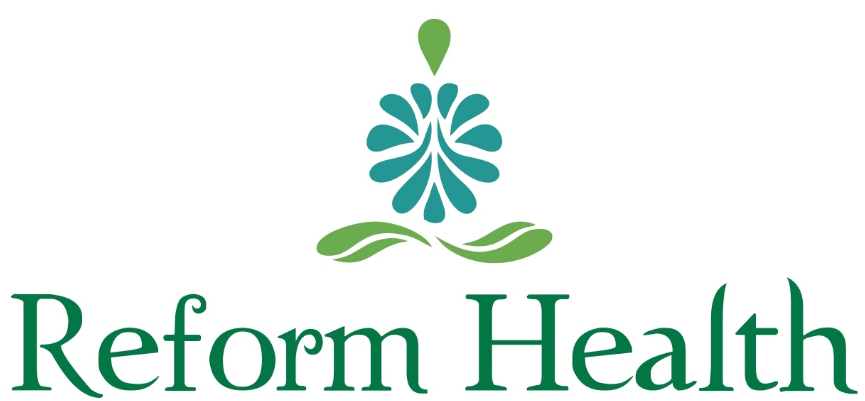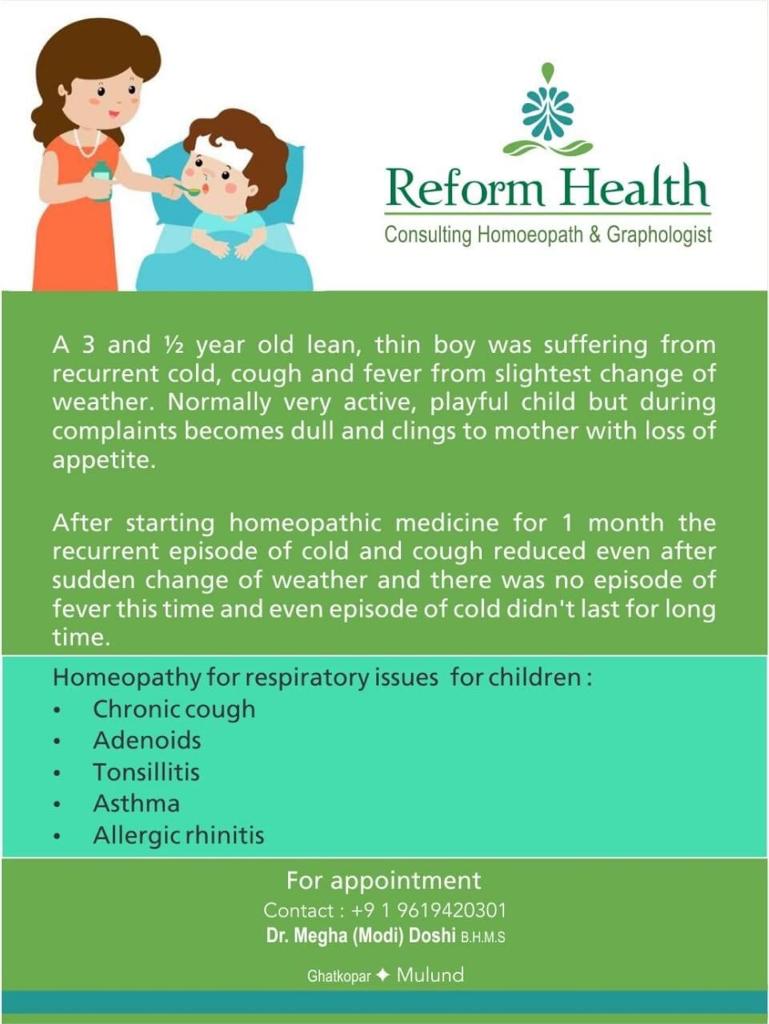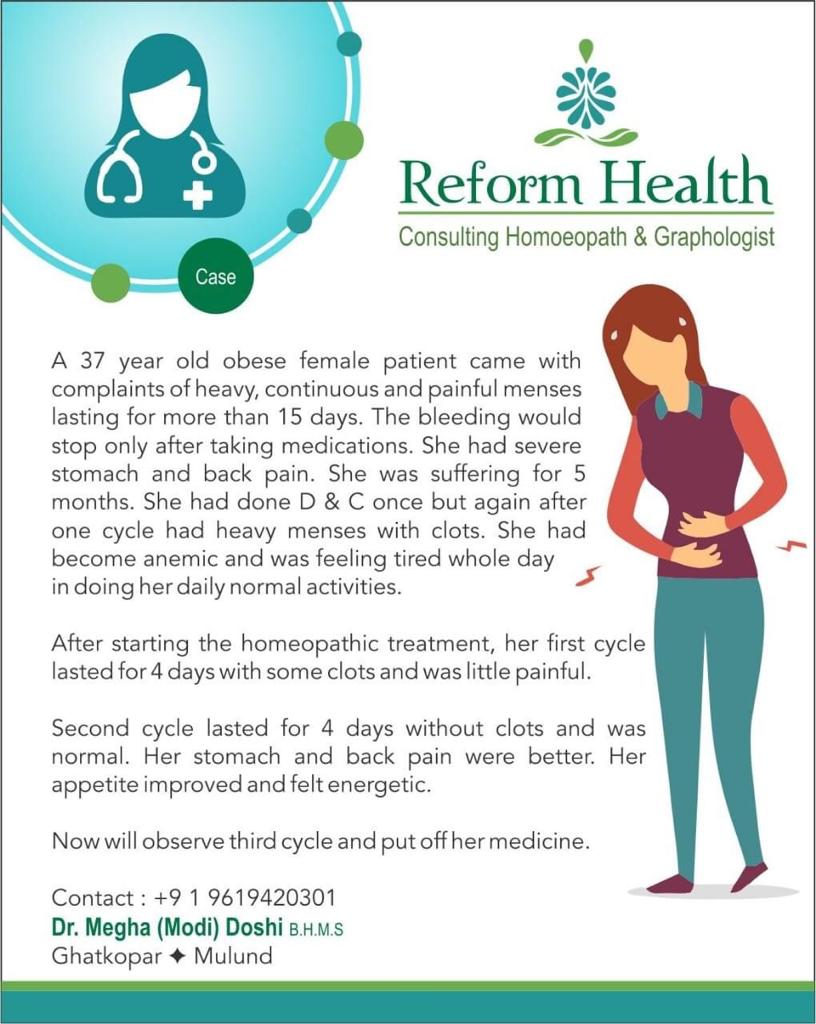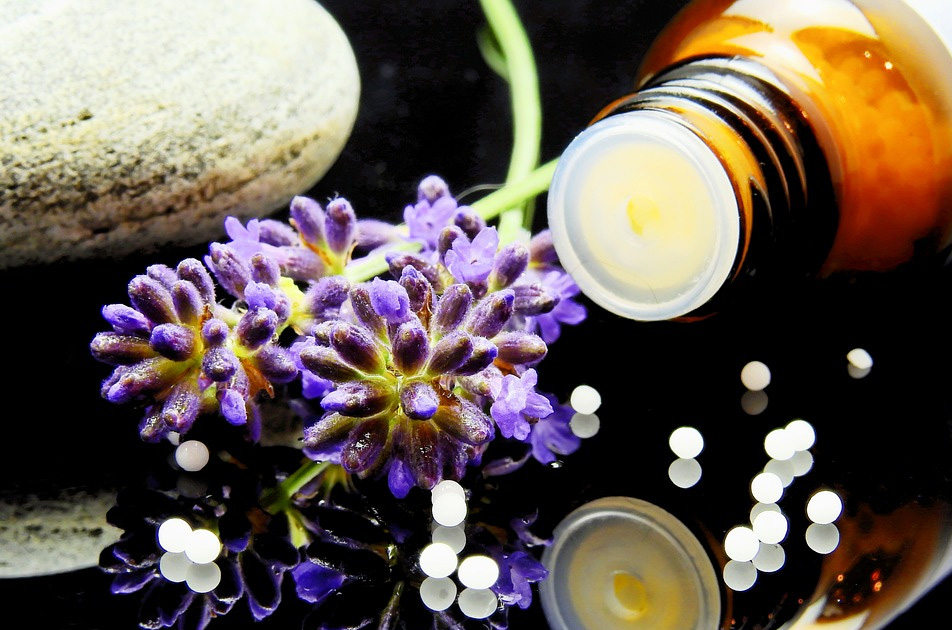
WHY HOMEOPATHY
Homeopathy is scientific, logical and effective method of healing. These remedies are prepared from natural substances and it works by stimulating the body’s own healing system.
HOW TO DO THIS
- Treats the internal disturbance
- Removes cause of the pain
- Helps improve immunity
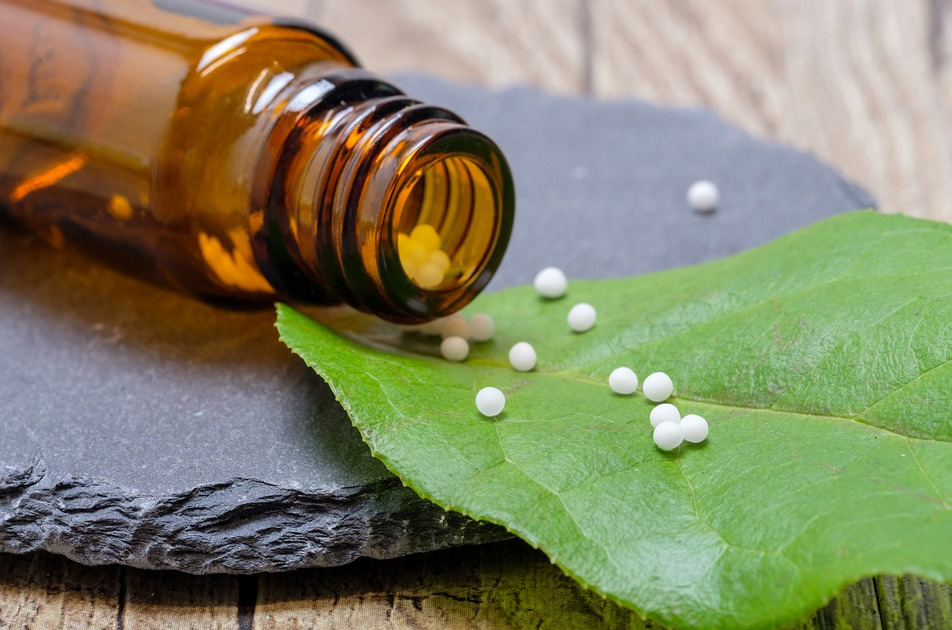
THE HOMEOPATHIC WAY
This system helps to improve the immunity of its own.
This helps to fight against any disturbance occurring mentally and physically, thus treating the patient as whole.
WHO CAN BE TREATED
- Homeopathy is for all age groups.
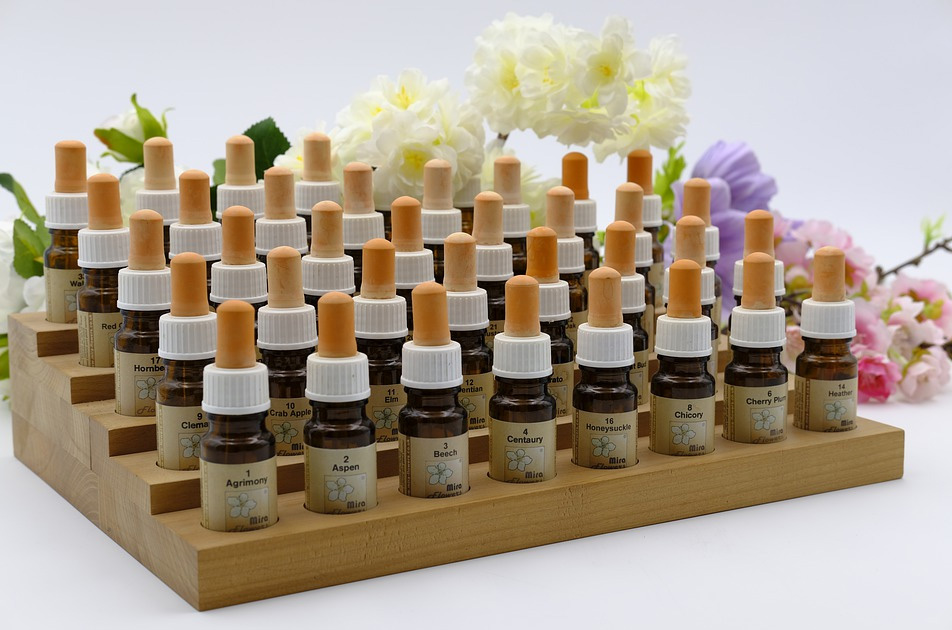
HOW DOES IT WORK
Homeopathy treats the internal disturbance let it be physical, pathological and psychological disease and not just the external manifestation of internal disease.
GREAT BENEFITS
- For headache, it will not give pain killer for pain, however, it gives medicine to remove the cause of pain and thus by treating the internal disturbance, the expression of disease is being treated.
- Homeopathy helps avoid unnecessary medical issues because it heals from deep within and can be taken over a long period with absolutely no side effects.
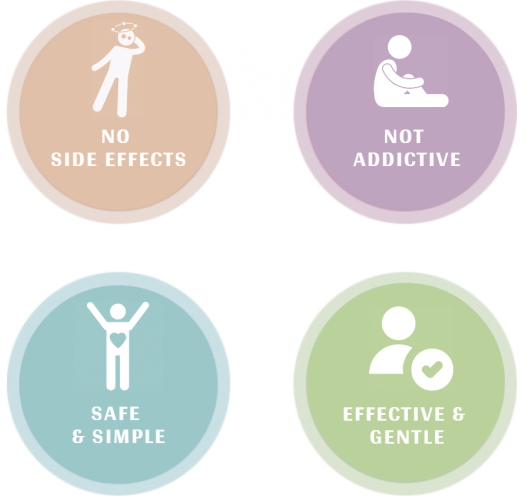
BENEFITS OF HOMEOPATHY
Effective and lasting
treatment of various medical conditions


We treat various disorders and chronic conditions with healing that has a lasting effect. Attention deficit hyperactivity disorder (ADHD) is a behavioural disorder that includes symptoms such as inattentiveness, hyperactivity and impulsiveness. These symptoms can cause significant problems in a child's life, such as underachievement at school, poor social interaction with other children and adults, and problems with discipline.
Other conditions such as Psoriasis, a long lasting autoimmune disease characterized by patches of abnormal skin, Hairfall, Asthma etc.
TREATMENT FOR VARIOUS CONDITIONS
Dr. Megha has great insight into homeopathy to understand the individual root cause of disease which will help the patient to heal as whole and not just the physical ailments.
Attention deficit hyperactivity disorder (ADHD)
Attention deficit hyperactivity disorder (ADHD) is a behavioural disorder that includes symptoms such as inattentiveness, hyperactivity and impulsiveness.
Inattentiveness
The main signs of inattentiveness are:
- having a short attention span and being easily distracted
- making careless mistakes – for example, in schoolwork
- appearing forgetful or losing things
- being unable to stick to tasks that are tedious or time-consuming
- appearing to be unable to listen to or carry out instructions
- constantly changing activity or task
- having difficulty organising tasks
Hyperactivity and impulsiveness
The main signs of hyperactivity and impulsiveness are:
- being unable to sit still, especially in calm or quiet surroundings
- constantly fidgeting
- being unable to concentrate on tasks
- excessive physical movement
- excessive talking
- being unable to wait their turn
- acting without thinking
- interrupting conversations
- little or no sense of danger
These symptoms can cause significant problems in a child's life, such as underachievement at school, poor social interaction with other children and adults, and problems with discipline.
Hair loss (alopecia or baldness)
Hair loss, also known as alopecia or baldness, refers to a loss of hair from part of the head or body.Typically at least the head is involved. The severity of hair loss can vary from a small area to the entire body. Typically inflammation or scarring is not present. Hair loss in some people causes psychological distress.
MOST COMMON TYPESMale or Female pattern baldness
- Permanent hair loss from the scalp, causing baldness.
- The cause of male-pattern hair loss is a combination of genetics and male hormones.
- The cause of female pattern hair loss is unclear
Alopecia areata
- Sudden hair loss that starts with one or more circular bald patches that may overlap.
- The cause of alopecia areata is autoimmune.
Telogen effluvium
- A reversible condition in which hair falls out after a stressful experience.
- The cause of telogen effluvium is typically a physically or psychologically stressful event. Telogen effluvium is very common following pregnancy.
Anagen effluvium
- An abnormal loss of hair during the first phase (anagen) of the hair's growth cycle.
- Less common causes of hair loss without inflammation or scarring include the pulling out of hair, certain medications including chemotherapy, HIV/AIDS, hypothyroidism, and malnutrition including iron deficiency. Causes of hair loss that occurs with scarring or inflammation include fungal infection, lupus erythematosus, radiation therapy, and sarcoidosis. Diagnosis of hair loss is partly based on the areas affected.
Homeopathy will help to reduce hairfall in following ways: 1. It will help to control hair loss and if loosing more than 200 strands daily then will help to reduce the speed of hair fall to 20 to 30 strands. 2. It will also help to reduce the factors that govern the hair loss such as stress and nutrition.
Psoriasis
Psoriasis is ling lasting autoimmune disease characterized by patches of abnormal skin. These skin patches are typically red, dry, itchy and scaly. Psoriasis varies in severity from small, localized patches to complete body coverage.
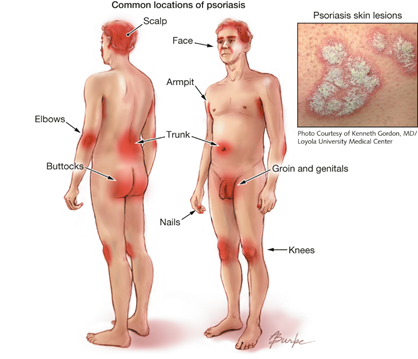
It typically presents as red patches with white scales on top. Areas of body most commonly affected are the back of forearms, shins, naval area and scalp.
- It typically presents as red patches with white scales on top.
- Areas of body most commonly affected are the back of forearms, shins, naval area and scalp.
- Guttate psoriasis has drop shaped lesions.
- Pustular psoriasis presents as small pus-filled blisters.
- Inverse psoriasis forms red patches in skin folds.
- Erythrodermic psoriasis occurs when the rash become very widespread.
- Symptoms are worse in winter and with certain medications like beta blockers and NSAID’S.
Homeopathy will help to treat psoriasis 1. By treating the root cause of disease like stress or genetic tendencies which will restore the immunity back to health. 2. It will help to prevent further development of complication due to psoriasis.
Asthma
Asthma is a common long-term inflammatory disease of the airways of the lungs. The people with asthma experience acute episodes of asthma due to exposure to allergen.
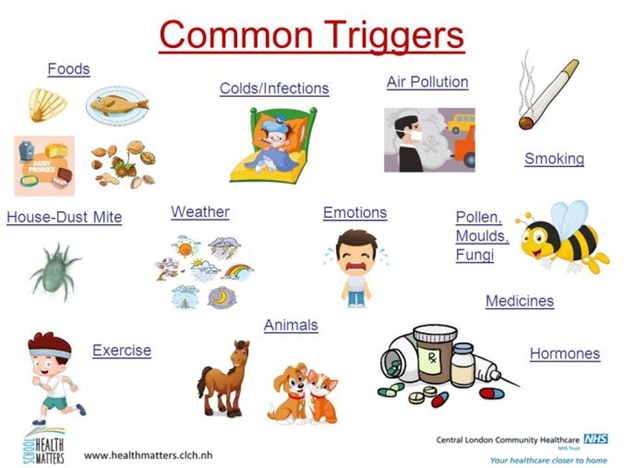
It is characterized by
- recurring symptoms
- reversible airflow obstruction
- bronchospasm
Symptoms include
- episodes of wheezing
- coughing
- chest tightness
- shortness of breath
These episodes may occur a few times a day or a few times per week. Depending on the person, they may become worse at night or with exercise.
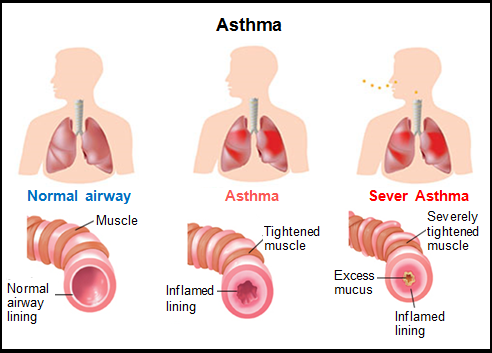
Asthma is thought to be caused by a combination of genetic and environmental factors. Environmental factors include exposure to air pollution and allergens.
Homeopathy will help to treat asthma in following ways: 1. It will improve the immunity of person so can fight against the allergen, which is usually over reactive during the episode of asthma and gradually the person will be comfortable even when exposed to allergen. 2. The person on conventional medicine should continue, as homeopathy mode of treatment works will gradually reduce the dose of conventional medicine.
PCOD
Polycystic ovarian syndrome (PCOS, polycystic ovary syndrome) is a relatively common hormonal disorder that causes a number of different symptoms in women of reproductive age. Common to all women with PCOS is an irregularity in the menstrual cycle and the presence of excess male hormones (androgens). The condition was named because of the finding of enlarged ovaries containing multiple small cysts (polycystic ovaries).
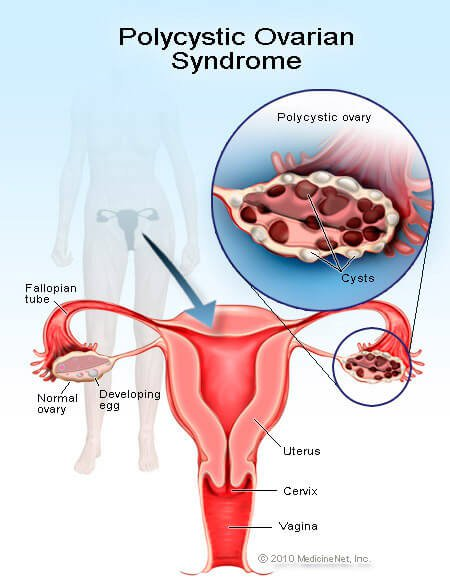
What Are the Symptoms of PCOS?
PCOS leads to disruptions in the menstrual cycle that typically begin around the onset of puberty. Menstrual cycles may be normal at first and then become irregular, or the onset of menses may be delayed. The menstrual irregularities of PCOS are accompanied by a lack of ovulation, so affected women may experience infertility.
An increase in the production of androgens (male hormones) by the ovaries in PCOS may lead to excess hair growth in areas suggesting a male pattern, known as hirsutism. Thick, pigmented hair growth occurs on the upper lip, chin, around the nipples, and on the lower abdomen. Excess androgens can also lead to acne and male pattern balding. Because of the absence or reduction in ovulation, women with PCOS have reduced levels of the hormone progesterone (normally produced after ovulation in the second half of the menstrual cycle). This can result in growth stimulation of the endometrium (lining tissues of the uterus), leading to dysfunctional uterine bleeding and breakthrough bleeding. Increased stimulation of the endometrium in the absence of progesterone production is a risk factor for the development of endometrial hyperplasia and uterine cancer.
Insulin resistance, weight gain, and obesity are also common in PCOS. Observers have suggested that about one-half of women with PCOS are obese.
Women with PCOS have also been reported to have an increased risk of developing type 2 diabetes, and many studies have shown abnormal blood lipid levels and elevated levels of C-reactive protein (CRP), a predictor of coronary artery disease. The combination of type 2 diabetes, elevated cholesterol and LDL levels, and elevated CRP levels suggest an increased risk of coronary heart disease on women with PCOS, although this risk has not yet been scientifically established.
Vitiligo
Vitiligo is a common, genetic, autoimmune skin disease in which there is loss of pigment from areas of the skin resulting in irregular white spots or patches. The skin has normal texture. Vitiligo may appear at any age. Although it is a progressive condition, many people experience years or decades without developing new spots.
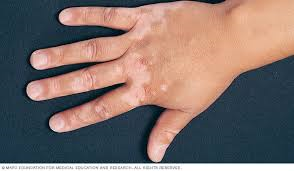
Symptoms of Vitiligo
- Typically occurs first on sun-exposed areas (face, hands, feet, arms, legs).
- Typically occurs first on sun-exposed areas (face, hands, feet, arms, legs).
- Typically occurs first on sun-exposed areas (face, hands, feet, arms, legs).
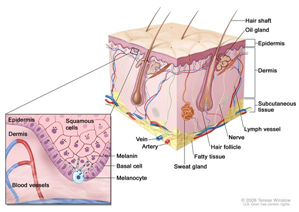
More details:
Homeopathy goes to the root of the problem by helping build up immunity and eventually restores the pigmented patches back to the normal skin color. Homoeopathy considers vitiligo as a local expression of a system disturbance. Vitiligo is a condition which requires an in-depth study of the individual case and only Constitutional Homeopathic treatment can help. The duration and success of treatment depends on extend of the patches and the duration of the illness. Big patches require more days whereas small spots yield faster. Treating vitiligo is a long process and may require one year or even more to cure it completely. Constitutional Homeopathic medicines stimulate the melanocyte function to be able to produce body’s own normal melanin pigment. After starting the treatment the skin starts becoming pink, turns brown thereafter and starts re-pigmenting slowly. As Homeopathy treats it from within, when the constitutional treatment is completed satisfactorily, it is unlikely that the patches reappear again as compared to treatment with conventional medicines.
Other Disease
Pathological Disease
GIT:acidity. Ulcer.worms.colitis.constipation.diarrhea.abdominal pain.irritable bowel syndrome. Nausea.vomiting
Female Problems
Amenorrhea • PCOD • Dysfunctional uterine bleeding • Fibroids • PME • Dysmenorrhea • Meno/Metorrhagia • Infertility • Pregnancy • Menopause • Respiratbreast • Cervical cancer
Children Problems
Tonsillitis • Adenoids • Recuurent Cold and Cough • NOCTURNAL ENEURESIS • ADHD
Respiratory Disease
Cough • Commmon cols • Asthma • Allergic Rhinitis • Chronic Bronchitis
Skin Diseases
Obesity • acne • psoriasis • eczema • warts • herpes • migraine • vertigo • epilepsy • paralysis • dementia • varicose vein and stroke
Psychological Disorders
Anxiety • Fear • Depression • Bipolar Disorders • Schizophrenia • Stress • Effects of emotional trauma • Panic Disorders • OCD • Social Phobia

WANT TO TAKE
APPOINTMENT?
Call us at +91 9619 420 301
Email us at megha.modi88@gmail.com
or
